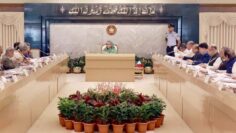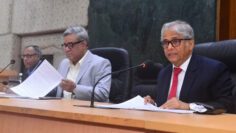TIB for cancelling provision for whitening black money
PBC News: Transparency International Bangladesh (TIB) has called upon the government to cancel the provision of whitening of black money in the forthcoming national budget (FY2021-22) to uphold its “zero tolerance” policy against corruption.
Citing the finance minister’s recent statement on extending indefinitely the unethical opportunity in the next financial year, TIB Executive Director DrIftekharuzzaman, in a statement issued on Saturday, said, “In the long-run, such facilities of whitening black money will create a risk of institutionalising the culture of default in the tax system by discouraging honest and legitimate income taxpayers.”
The organisation termed such opportunities in the budget discriminatory and unconstitutional and one that supports graft.
“In the forthcoming budget, by removing the options for any kind of question about the source of money, the government has erased the difference between ‘undisclosed money’ earned legally and black money earned through irregularities and corruption,” Dr Iftekharuzzaman said in the statement.
This will create a liberal situation for the corrupt in the country as there will be no opportunity to question the source of income. And it will challenge any attempt to establish the rule of law and good governance by weakening the government’s stance against corruption, the anti-graft watchdog said.
TIB hoped that the government would move away from such irresponsible and suicidal plans.
Justice in the country’s tax system will be questioned with the government’s plan to keep the opportunity to whiten black money for an indefinite period. And it will be considered a new incentive for the corrupt during the Covid-19 period, the TIB executive director said.
He threw a question to the government, “If there is an opportunity to launder black money with only 10% tax, why should honest taxpayers pay 25-30%?”
DrIftekharuzzaman said, “Even if the government gets some revenue temporarily from such an opportunity, it will encourage a large number of taxpayers to default, which will institutionalise a new culture of tax evasion.”



















